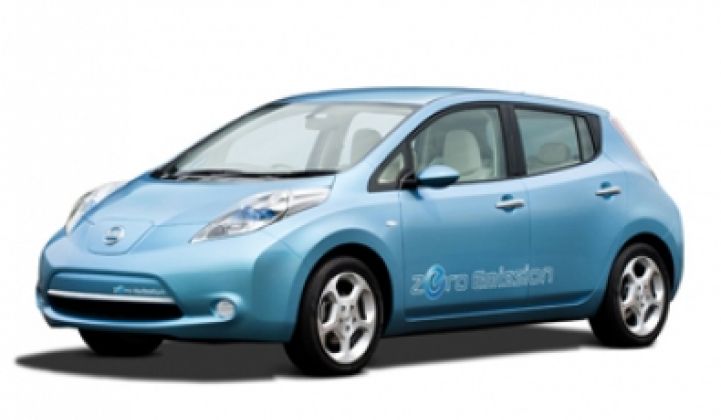Despite a push of advertising and education, the average American driver is still relatively uninterested in electric vehicles, according to a new study.
There are some bright spots of the findings from the Indiana University School of Public and Environmental Affairs, including which cities have the most receptive car buyers when it comes to plug-in cars.
The study surveyed more than 2,300 drivers in 21 U.S. cities. The survey, however, was conducted more than a year ago, when there were just two major EVs -- the Nissan Leaf and Chevy Volt -- available to consumers.
Fully electric and plug-in hybrids cost more than conventional cars, and sticker price was cited as the major barrier by more than half of the respondents. Range anxiety was the second concern, although the interest was not much stronger for a plug-in hybrid versus and all-electric car.
"Although many engineers, environmentalists and politicians are enthusiastic about electric vehicle technology, this survey reveals that new car buyers, based on early impressions, have little interest in purchasing plug-in vehicles," John D. Graham, dean of the School of Public and Environmental Affairs and a co-author of the study, said in a statement.
Many respondents said that fuel economy was a major advantage of plug-in vehicles, but that didn’t outweigh perceived negatives, such as charge time and sticker price.
It is well known that car purchases are often emotional, not rational, decisions. The vehicle appearance had a negative effect, and even if people knew their travel behavior was well within the range of the car, it didn’t make them more likely to be interested. The only positive awareness variable was that people who had seen recharging stations were more likely to consider an electric vehicle.
There are more than 11,000 commercial charging stations deployed, and while some visible chargers are important for public awareness, the vast majority of charging still happens at home.
The issue of adopting electric vehicles comes down to cost, as well as other issues such as vehicle design. Around the time of the survey, Travis Bradford, president and founder of the Prometheus Institute for Sustainable Development and co-author of the recent GTM Research report, Electric Vehicles 2011: Technology, Economics, and Market, offered six big thoughts on what will and won’t happen in the electric vehicle market in the coming years.
Bradford noted that one of the most important factors for the EV market is the price and efficiency of regular cars. Fuel economies continue to rise, which make it hard for most people to justify the cost increase of an electric car, especially if they don’t intend to own a car for more than five years.
Many of the reservations of car buyers can be addressed. San Jose and San Francisco had the highest intent-to-purchase ratio, which were two of the cities with early adopters. Like any other new technology, just seeing the cars or knowing someone who has one will help buyers understand the technology better. Each state also has its own incentives, or lack thereof, which can make a difference in terms of final sticker price. In Washington state, lawmakers recently passed a $100 annual tax on EV drivers to make up for the money that would usually be collected through gasoline taxes.
The increased offerings from the big automakers will also give shoppers more options at dealerships. But without a significant drop in the cost of EVs, the success of electrified cars is still anyone’s guess.



